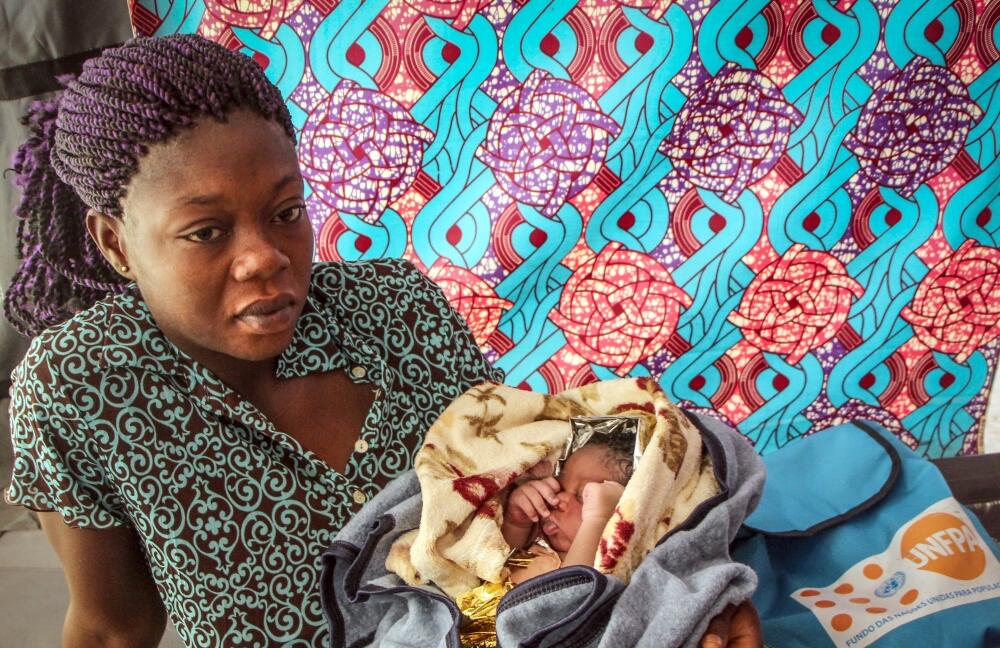WINDHOEK, Namibia, 8 November—The Southern African Development Community’s (SADC) groundbreaking and far-reaching Regional Strategy for Sexual and Reproductive Health and Rights (SRHR) 2019–2030, and corresponding Score Card to measure progress, was approved by the Ministers of Health and Ministers responsible for HIV & AIDS from the 16 SADC Member States.
The Sexual and Reproductive Health and Rights (SRHR) Strategy for the SADC Region (2019–2030) provides a framework for the Member States to fast-track a healthy sexual and reproductive life for the people in the region, and for all people to be able to exercise their rights.
The first ever multi-sectoral score card to be adopted by a regional entity was also given the ministerial green light. The purpose of the scorecard is for the region to measure progress on achieving implementation of the strategy and the sustainable development goals.
“SADC leads the world on improving sexual and reproductive health”

- Dr. Catherine Sozi, UNAIDS Regional Director for East and
Southern Africa. © UNFPA Namibia
Speaking on behalf of the United Nations, Dr. Catherine Sozi, Regional Director for the Joint United Nations Programme on HIV/AIDS (UNAIDS) in East and Southern Africa (ESA), praised the SADC Ministers for their commitment to strengthening the sexual and reproductive health and rights of all people in the region by adopting the strategy.
“Today, you have committed that the SADC will continue to lead the world on improving the sexual and reproductive health of its people,” she said.
The adoption of the strategy and score card comes on the eve of the 25th Anniversary of the International Conference on Population and Development (ICPD) Programme of Action in 2019, which is aimed at advancing people’s well-being and ensuring that human rights are placed at the centre of global development.
SADC region making great progress in development
SADC Member States have made notable progress in implementing actions proposed in the ICPD Programme of Action, which have led to substantial development gains.
Life expectancy increased across the region from 52 years in 2007 to 60 years in 2016. Progress has been made on most sexual and reproductive health indicators. This includes declines in maternal mortality, infant mortality, unmet need for family planning and female genital mutilation, and increased access to education, particularly for girls, and reduced rates of new HIV infections and increased numbers of people on treatment.
We have to recommit ourselves to achieving the vision of the Sustainable Development Goals (SDGs) that have reaffirmed the ICPD agenda to leave no one behind.
“Despite these gains, we know that more must be done. We have to recommit ourselves to achieving the vision of the Sustainable Development Goals (SDGs) that have reaffirmed the ICPD agenda to leave no one behind,” Dr. Sozi added.
The SADC’s efforts to develop and adopt the SRHR Strategy and Score Card have been supported by UNAIDS, the United Nations Population Fund (UNFPA), the United Nations International Children's Emergency Fund (UNICEF) and the World Health Organization (WHO) in partnership with SheDecides, Southern African civil society organizations and youth-led organizations. The four UN agencies, through the 2gether 4 SRHR Programme, supported the following:
- The convening of the Technical Committee that oversaw the development of the draft SRHR Strategy for the SADC;
- The recruitment of a consultant who helped to develop the draft SRHR Strategy for the SADC Region (2019 – 2030) and Score Card.
- The convening of the Technical Consultation consisting of representatives from the Ministries of Health, Education, Youth and Gender, and from civil society and youth-led organizations.
The 2gether 4 SRHR Programme is supported by the Government of Sweden (SIDA), which has invested $45 million in support from the United Nations to governments in the region to scale up the provision of quality integrated sexual and reproductive health and rights, HIV and sexual and gender-based violence services. The focus of the programme will now be to support the SADC and its 16 Member States to domesticate the strategy, in line with national laws and frameworks, and to populate the score card.
- Emma Mbekele


